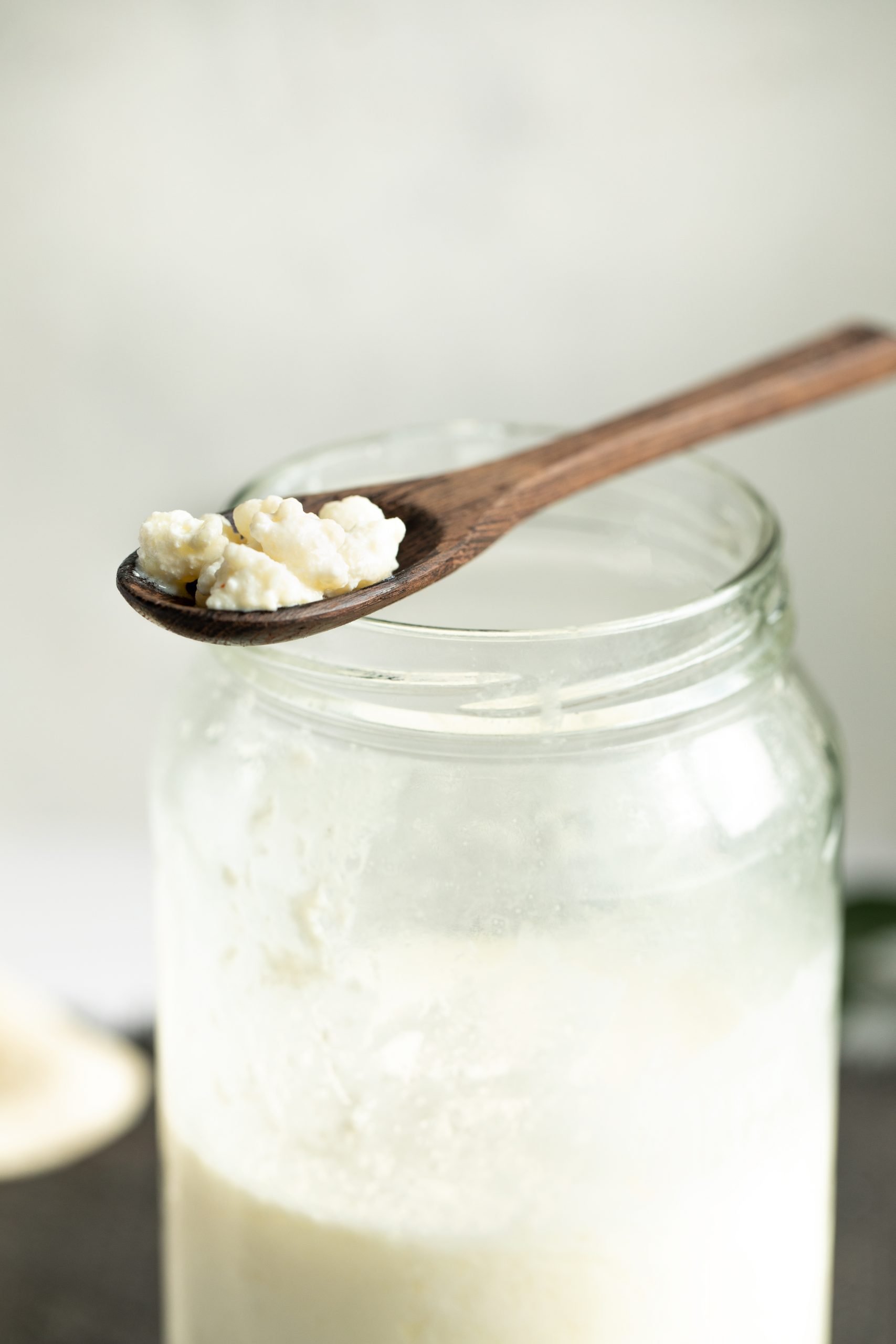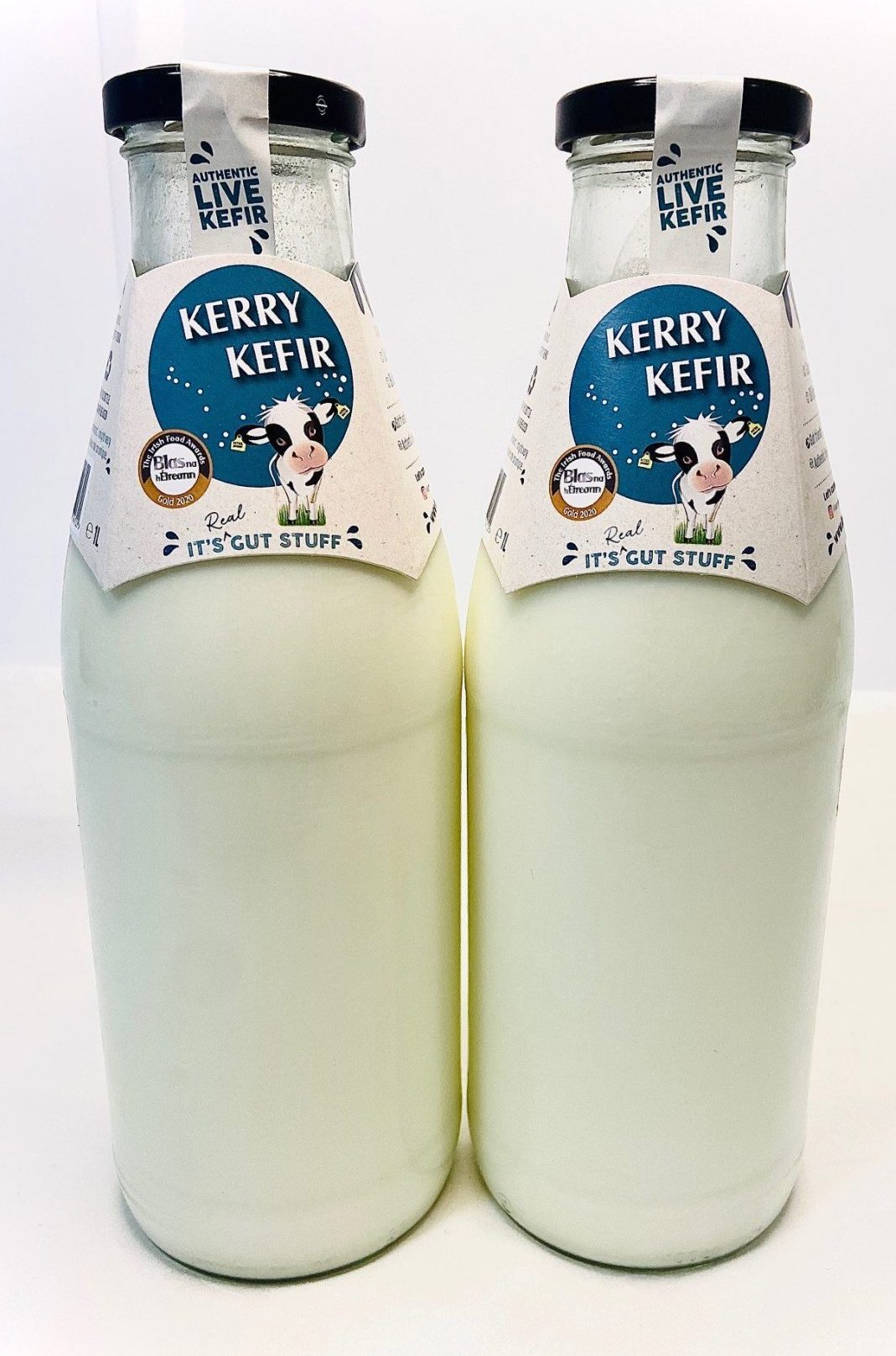A new study published in The Journal of Dairy Science has taken a close look at kefir products available in Ireland, and the findings are fascinating for anyone who cares about real food, gut health, and traditional fermentation.
The research analysed kefir brands currently sold on the Irish market, comparing their microbial composition, diversity, and production methods. The results? Not all kefir is created equal, and Kerry Kefir stood out for all the right reasons.
Powder vs. Live Kefir Grains in Milk Kefir
While kefir is becoming increasingly popular in Ireland, the study found that most milk kefirs (including those labelled as “yoghurt kefirs”) are made using powdered starter cultures rather than live kefir grains. These powdered starters can produce a drink that looks and tastes somewhat similar to kefir.
True kefir is made using live kefir grains, a symbiotic community of bacteria and yeasts that continuously evolve and adapt with each batch. It’s a living ecosystem that can’t be replicated in a lab. This centuries-old fermentation process produces beneficial bioactive compounds and short-chain fatty acids that play an important role in supporting the gut microbiota, and is what gives traditional kefir its distinctive fizz and tangy flavour.

Kerry Kefir: Recognised as the Only Live-Grain Milk Kefir in Ireland
According to the study, Kerry Kefir was identified as the only milk kefir on the Irish market made using live kefir grains.
That line meant a lot to me. This distinction highlights a key difference in production methods across the industry and underscores the value of maintaining traditional fermentation practices. To see traditional fermentation recognised in a peer-reviewed scientific study means the world. It’s validation for the years of work, patience, and care that go into keeping our kefir authentic, and it highlights just how rare this craft has become.
While the research didn’t make any health claims (and we can’t either), it did note that Lactobacillus kefiranofaciens, one of the most dominant bacteria in traditionally grain-produced kefir:
“Lactobacillus kefiranofaciens was only notably abundant (13.9%) in our traditionally grain-produced kefir R. Lactobacillus kefiranofaciens is capable of metabolizing lactose and other sugars in milk to produce lactic acid, which lowers the pH of the kefir (Georgalaki et al., 2021). This bacterium, and especially its exopolysaccharide kefiran (Jeong et al., 2017), has several probiotic properties, such as antimicrobial activity (Santos et al., 2003; Zanirati et al., 2015) and immunomodulatory properties (Chen et al., 2012) such as enhancing epithelial barrier function and contributing to the gut microbiota health (Georgalaki et al., 2021).”
This mirrors what we found in our own DNA analysis in partnership with Shannon ABC, over 40 strains of beneficial microbes, each varying with the seasons, offering your body the support it may need at different times of the year.
This is the difference between diversity and quantity. While many supplements and drinks promote billions of bacteria, real kefir focuses on variety, a living balance that adapts and evolves naturally.

Why This Matters
This study serves as a reminder that not all kefir is created equal. Understanding how products are made helps consumers make more informed choices about what they bring to their table. Traditional fermentation isn’t just a process, it’s a heritage. It connects us to generations before us who relied on these living cultures to preserve food and support health long before modern science explained how or why it worked.
To me, this study is more than a scientific paper. It’s a reminder that the old ways still have value and that Ireland’s food landscape is richer when we protect and champion them.
I’m incredibly proud that Kerry Kefir was recognised for staying true to its roots, made in small batches in Castleisland, Co. Kerry, with milk from Kerry’s local farms and our live kefir grains. Can we claim Kerry Kefir is the best kefir on the Irish market now? We’ll let the science speak for itself.
